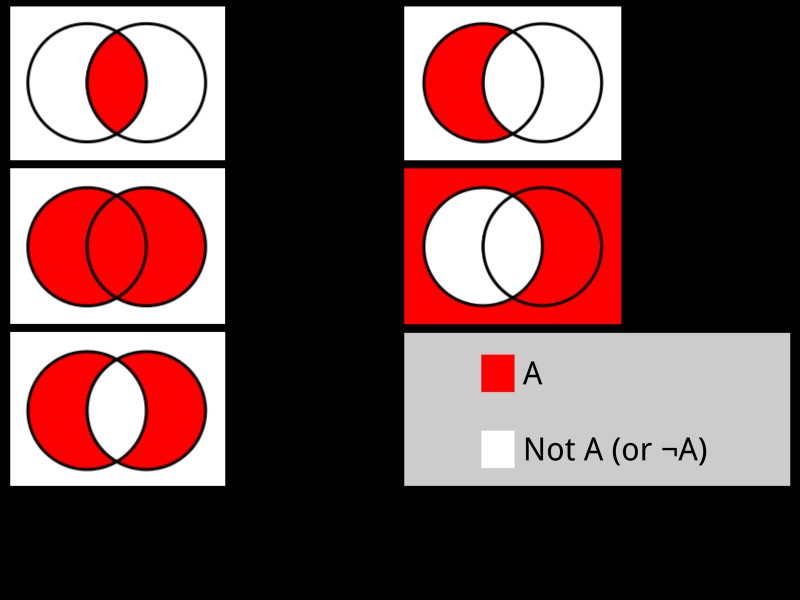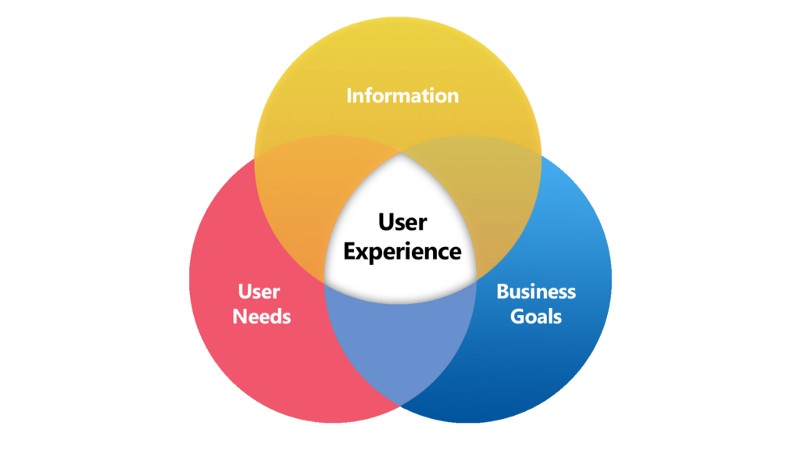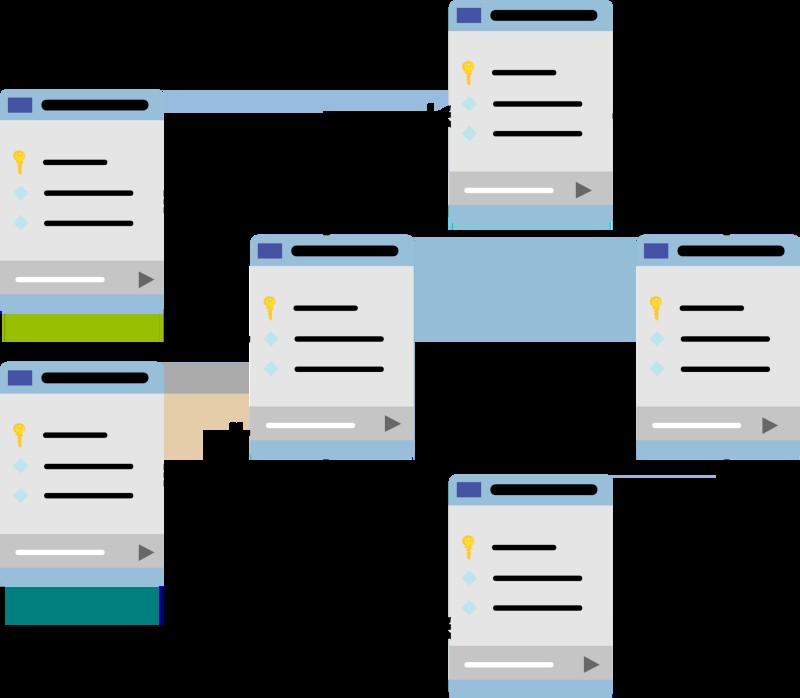Computer science learning is a multifaceted field that encompasses a wide array of theoretical and practical knowledge. At LEARNS.EDU.VN, we demystify this discipline, offering insights into its core concepts and applications. Whether you’re a student, professional, or simply curious, understanding what computer science entails can unlock countless opportunities in today’s digital world.
1. What Exactly Does Computer Science Learn?
Computer science learning focuses on the principles and practices of computation and information processing. It involves studying algorithms, data structures, programming languages, and computer architecture. According to a 2023 report by the Association for Computing Machinery (ACM), computer science also emphasizes problem-solving, critical thinking, and the design of efficient and scalable software systems.
2. What Are the Core Areas of Study in Computer Science?
Computer science encompasses several key areas, each contributing to a holistic understanding of the field. These areas include:
- Programming Languages: Mastering languages like Python, Java, and C++.
- Data Structures and Algorithms: Understanding efficient methods for organizing and manipulating data.
- Computer Architecture: Learning how computer hardware and software interact.
- Database Management: Acquiring skills in designing and managing databases.
- Software Engineering: Developing methodologies for creating reliable and maintainable software.
- Artificial Intelligence: Exploring machine learning, neural networks, and natural language processing.
- Cybersecurity: Protecting computer systems and networks from threats.
Table 1: Core Areas of Computer Science
| Area | Description | Key Skills |
|---|---|---|
| Programming Languages | Learning syntax, semantics, and paradigms of various programming languages. | Coding, debugging, problem-solving |
| Data Structures | Organizing and storing data efficiently. | Algorithm design, data analysis, optimization |
| Algorithms | Developing step-by-step procedures for solving computational problems. | Logical reasoning, computational thinking, efficiency analysis |
| Computer Architecture | Understanding the design and organization of computer systems. | Hardware-software interaction, system optimization, performance tuning |
| Database Management | Designing and managing databases to store and retrieve information. | SQL, data modeling, database design |
| Software Engineering | Applying engineering principles to software development. | Project management, testing, quality assurance |
| Artificial Intelligence | Developing intelligent systems that can perform tasks that typically require human intelligence. | Machine learning, neural networks, natural language processing |
| Cybersecurity | Protecting computer systems and networks from cyber threats. | Network security, cryptography, ethical hacking |





3. Why Is Programming a Fundamental Aspect of Computer Science Learning?
Programming is central to computer science learning because it enables the creation of software applications, tools, and systems that drive technological innovation. According to a 2024 study by the Bureau of Labor Statistics, programming skills are highly valued across various industries, including finance, healthcare, and education.
4. How Do Data Structures and Algorithms Contribute to Computer Science?
Data structures and algorithms are the building blocks of efficient and scalable software. They provide methods for organizing and manipulating data in a way that optimizes performance. A 2022 report by MIT highlights that a strong understanding of these concepts is crucial for developing high-performance applications and solving complex computational problems.
5. What Role Does Computer Architecture Play in Computer Science Learning?
Computer architecture provides insights into how computer hardware and software interact. It enables computer scientists to design and optimize systems for specific tasks. According to Stanford University’s Computer Systems Laboratory, understanding computer architecture is essential for developing efficient and reliable computing systems.
6. How Does Database Management Fit Into the Realm of Computer Science?
Database management involves designing, implementing, and maintaining systems for storing and retrieving data. It is a critical component of many applications, from e-commerce platforms to scientific research databases. A 2023 report by Oracle emphasizes the importance of database management skills in ensuring data integrity and accessibility.
7. What Is the Significance of Software Engineering in Computer Science Learning?
Software engineering focuses on the principles and practices of developing high-quality software. It involves project management, testing, and quality assurance techniques to ensure that software systems are reliable, maintainable, and meet user requirements. According to the IEEE Computer Society, software engineering is essential for managing the complexity of modern software projects.
8. How Does Artificial Intelligence Relate to Computer Science?
Artificial intelligence (AI) is a branch of computer science that aims to create intelligent systems capable of performing tasks that typically require human intelligence. It encompasses machine learning, neural networks, natural language processing, and robotics. A 2024 report by OpenAI highlights the transformative potential of AI across various domains, from healthcare to transportation.
9. Why Is Cybersecurity an Increasingly Important Area of Computer Science?
Cybersecurity focuses on protecting computer systems and networks from cyber threats, such as hacking, malware, and data breaches. As technology becomes more integrated into our lives, the need for cybersecurity professionals has grown exponentially. According to a 2023 report by Cybersecurity Ventures, the global cost of cybercrime is expected to reach $10.5 trillion annually by 2025.
10. What Are Some Essential Programming Languages to Learn in Computer Science?
Several programming languages are fundamental to computer science, each with its strengths and applications. These include:
- Python: Known for its simplicity and versatility, widely used in data science, machine learning, and web development.
- Java: Popular for enterprise applications, Android development, and large-scale systems.
- C++: Used in game development, system programming, and high-performance computing.
- JavaScript: Essential for front-end web development and increasingly used in back-end development with Node.js.
- C#: Primarily used for developing Windows applications and games with Unity.
Table 2: Essential Programming Languages in Computer Science
| Language | Use Cases | Key Features |
|---|---|---|
| Python | Data science, machine learning, web development, scripting | Simple syntax, extensive libraries, cross-platform compatibility |
| Java | Enterprise applications, Android development, large-scale systems | Object-oriented, platform-independent, robust |
| C++ | Game development, system programming, high-performance computing | High performance, low-level control, object-oriented |
| JavaScript | Front-end web development, back-end development (Node.js) | Browser compatibility, asynchronous programming, large ecosystem |
| C# | Windows applications, game development (Unity), enterprise applications | .NET framework, object-oriented, type-safe |
11. How Can Discrete Structures Enhance My Computer Science Knowledge?
Discrete structures provide the mathematical foundations necessary for computer science. They enhance your understanding of logic, set theory, and graph theory, which are essential for algorithm design and analysis. Learning these concepts early can significantly improve your problem-solving skills.
12. What Can I Learn from Web Development Courses?
Web development courses offer practical skills in HTML, CSS, JavaScript, and various frameworks like React and Angular. You’ll learn how to build interactive websites and web applications, understand front-end and back-end development, and gain experience with UI/UX design.
13. What Are the Benefits of Studying Computer Architecture and Assembly Language?
Studying computer architecture and assembly language gives you a deep understanding of how computers work at a low level. You’ll learn how machine instructions are processed, how memory is managed, and how software interacts with hardware. This knowledge is invaluable for optimizing performance and debugging complex systems.
14. How Do Operating Systems Courses Improve My Programming Skills?
Operating systems courses teach you how operating systems manage hardware and software resources. You’ll learn about process management, memory management, file systems, and concurrency. This knowledge helps you write more efficient and robust applications.
15. What Is the Importance of Learning Computer Networks?
Learning about computer networks helps you understand how data is transmitted across networks and the internet. You’ll learn about network protocols like HTTP, TCP/IP, and DNS, and gain insights into network security and troubleshooting. This knowledge is crucial for developing networked applications and understanding internet infrastructure.
16. How Can Usability Engineering Courses Help in Software Development?
Usability engineering courses focus on designing software that is easy to use and accessible. You’ll learn about user interface design principles, accessibility standards, and user testing methodologies. This knowledge helps you create software that meets user needs and provides a positive user experience.
17. What Are the Key Concepts in Mobile and Cloud Software Development?
Mobile and cloud software development courses teach you how to build applications for mobile devices and cloud platforms. You’ll learn about mobile app development frameworks like Swift and Kotlin, and cloud computing services like AWS and Azure. This knowledge prepares you for developing modern, scalable applications.
18. What Is Big O Notation and Why Is It Important?
Big O notation is a mathematical notation used to describe the performance or complexity of an algorithm. It helps you evaluate how an algorithm’s runtime or space requirements grow as the input size increases. Understanding Big O notation is crucial for writing efficient code and optimizing performance.
19. How Does Learning About Databases Help in Real-World Applications?
Learning about databases allows you to store, manage, and retrieve data efficiently. You’ll learn about database design principles, SQL queries, and database management systems like MySQL and PostgreSQL. This knowledge is essential for developing data-driven applications in various industries.
20. What Is the Role of Software Engineering Methodologies Like Scrum and Waterfall?
Software engineering methodologies like Scrum and Waterfall provide structured approaches to software development. Scrum is an agile methodology that emphasizes iterative development, collaboration, and flexibility. Waterfall is a more traditional methodology that follows a sequential, linear approach. Understanding these methodologies helps you manage software projects effectively.
21. What Makes Artificial Intelligence a Key Area of Study in Computer Science?
Artificial intelligence (AI) is a transformative field that enables machines to perform tasks requiring human intelligence. Studying AI involves understanding machine learning algorithms, neural networks, and natural language processing techniques. AI is applied in various fields, including healthcare, finance, and transportation, making it a key area of study.
22. How Can Knowledge of Computer Networks Benefit a Mobile Developer?
Knowledge of computer networks is crucial for mobile developers as it allows them to understand how mobile apps communicate with servers and other devices. Understanding network protocols, security, and optimization techniques can help developers build robust and efficient mobile applications.
23. What Are the Latest Trends in Computer Science Education?
The latest trends in computer science education include:
- Online Learning Platforms: Platforms like Coursera, edX, and LEARNS.EDU.VN offer a wide range of computer science courses.
- Interactive Coding Environments: Tools that allow students to write and execute code in real-time.
- Project-Based Learning: Emphasizing hands-on projects to apply theoretical knowledge.
- Gamification: Using game-like elements to make learning more engaging.
- Emphasis on Soft Skills: Developing communication, teamwork, and problem-solving skills.
Table 3: Latest Trends in Computer Science Education
| Trend | Description | Benefits |
|---|---|---|
| Online Learning Platforms | Platforms offering structured computer science courses, tutorials, and certifications. | Accessible education, flexible scheduling, wide range of topics |
| Interactive Coding | Environments allowing real-time code writing, execution, and debugging. | Immediate feedback, enhanced engagement, practical coding experience |
| Project-Based Learning | Curriculum that emphasizes hands-on projects to apply theoretical knowledge. | Real-world application, problem-solving skills, portfolio development |
| Gamification | Incorporation of game elements like points, badges, and leaderboards into the learning process. | Increased motivation, enhanced engagement, improved retention |
| Emphasis on Soft Skills | Development of non-technical skills such as communication, teamwork, and critical thinking. | Improved collaboration, enhanced problem-solving, better career prospects |
24. How Does LEARNS.EDU.VN Support Computer Science Learners?
LEARNS.EDU.VN offers a comprehensive platform for computer science learning, including:
- Structured Courses: Covering fundamental concepts to advanced topics.
- Interactive Tutorials: Providing hands-on coding experience.
- Expert Instructors: Experienced professionals guiding learners.
- Community Support: A forum for learners to connect and collaborate.
- Career Resources: Guidance on job opportunities and career paths.
25. What Are Some Common Misconceptions About Computer Science?
Some common misconceptions about computer science include:
- It’s only about coding: Computer science involves much more than just writing code.
- It’s only for math geniuses: While math is helpful, problem-solving skills are more crucial.
- It requires expensive equipment: Basic coding can be done with minimal hardware.
- It’s a solitary activity: Collaboration and teamwork are essential in many computer science roles.
- It’s a static field: Computer science is constantly evolving, requiring continuous learning.
26. How Can Computer Science Skills Enhance Career Opportunities?
Computer science skills are highly valued in today’s job market. A 2024 report by LinkedIn highlights that software developers, data scientists, and cybersecurity analysts are among the most in-demand professions. Acquiring these skills can open doors to various career paths with competitive salaries and growth opportunities.
27. What Are the Benefits of Learning Data Structures and Algorithms Early?
Learning data structures and algorithms early provides a solid foundation for problem-solving and efficient coding. It enables you to write code that performs well and scales effectively. This knowledge is also essential for technical interviews and competitive programming.
28. How Does Understanding Computer Architecture Impact Software Development?
Understanding computer architecture allows developers to write code that is optimized for specific hardware. It helps in making informed decisions about memory management, CPU utilization, and parallel processing, leading to better performance and efficiency.
29. What Role Does Testing Play in Software Engineering and How Can I Learn It?
Testing is a critical part of software engineering that ensures software reliability and quality. You can learn about different types of testing, such as unit testing, integration testing, and system testing. Understanding testing methodologies helps you identify and fix bugs early in the development process.
30. What Are the Key Skills Learned in a Cybersecurity Course?
A cybersecurity course teaches you how to protect computer systems and networks from cyber threats. You’ll learn about network security, cryptography, ethical hacking, and incident response. These skills are essential for securing data and preventing cyber attacks.
31. How Can I Stay Updated with the Latest Developments in Computer Science?
Staying updated with the latest developments in computer science involves:
- Reading industry blogs and publications: Such as the ACM and IEEE Computer Society.
- Attending conferences and workshops: To learn from experts and network with peers.
- Participating in online communities: To exchange ideas and get help from fellow learners.
- Taking online courses: To acquire new skills and knowledge.
- Experimenting with new technologies: To stay ahead of the curve.
32. What Are the Practical Applications of Data Structures in Software Development?
Data structures are used in various practical applications, including:
- Arrays: Storing and accessing elements in a linear sequence.
- Linked Lists: Implementing dynamic lists with efficient insertion and deletion.
- Trees: Organizing hierarchical data for efficient searching and sorting.
- Graphs: Modeling networks and relationships between entities.
- Hash Tables: Storing and retrieving data with fast lookups.
33. How Do Algorithms Help in Solving Real-World Problems?
Algorithms provide step-by-step procedures for solving computational problems. They are used in various applications, including:
- Searching: Finding specific elements in a dataset.
- Sorting: Arranging elements in a specific order.
- Optimization: Finding the best solution to a problem.
- Machine Learning: Training models to make predictions and decisions.
- Cryptography: Securing data through encryption and decryption.
34. What Is the Importance of Learning About Ethical Considerations in Computer Science?
Learning about ethical considerations in computer science is crucial for developing responsible and trustworthy technology. It involves understanding the ethical implications of AI, data privacy, and cybersecurity. This knowledge helps you make informed decisions that align with ethical principles and societal values.
35. How Can I Prepare for a Technical Interview in Computer Science?
Preparing for a technical interview in computer science involves:
- Reviewing data structures and algorithms: To solve coding problems efficiently.
- Practicing coding problems: On platforms like LeetCode and HackerRank.
- Understanding system design principles: To design scalable and reliable systems.
- Preparing behavioral questions: To showcase your soft skills and experience.
- Researching the company: To demonstrate your interest and knowledge.
36. What Are the Benefits of Contributing to Open Source Projects?
Contributing to open-source projects offers several benefits, including:
- Improving coding skills: By working on real-world projects.
- Learning from experienced developers: Through code reviews and collaboration.
- Building a portfolio: To showcase your work to potential employers.
- Networking with peers: To expand your professional connections.
- Giving back to the community: By contributing to valuable software.
37. How Can I Use Computer Science Skills to Solve Social Problems?
Computer science skills can be used to solve social problems in various ways, including:
- Developing assistive technologies: To help people with disabilities.
- Creating educational tools: To improve access to education.
- Building healthcare applications: To improve patient care and outcomes.
- Analyzing data: To identify and address social inequalities.
- Creating sustainable solutions: To address environmental challenges.
38. What Resources Does LEARNS.EDU.VN Offer for Aspiring Computer Scientists?
LEARNS.EDU.VN offers a wide range of resources for aspiring computer scientists, including:
- Comprehensive courses: Covering fundamental and advanced topics.
- Interactive tutorials: Providing hands-on coding experience.
- Expert instructors: Experienced professionals guiding learners.
- Community forums: A place to connect and collaborate with peers.
- Career resources: Guidance on job opportunities and career paths.
At LEARNS.EDU.VN, we are dedicated to providing high-quality computer science education to learners of all levels. Our courses are designed to be accessible, engaging, and relevant to the needs of today’s job market. Whether you are just starting or looking to advance your skills, we have the resources you need to succeed.
Ready to start your computer science journey? Visit LEARNS.EDU.VN today to explore our courses and resources. Our expert instructors and comprehensive materials will guide you every step of the way. Don’t miss out on the opportunity to enhance your career and unlock your potential in the exciting world of computer science.
For more information, contact us at:
Address: 123 Education Way, Learnville, CA 90210, United States
Whatsapp: +1 555-555-1212
Website: learns.edu.vn
FAQ Section: What Does Computer Science Learn?
Q1: What is the main focus of computer science learning?
Computer science learning primarily focuses on the theoretical foundations of information and computation, and their implementation and application in computer systems.
Q2: Which programming languages are most important to learn for a career in computer science?
Key programming languages include Python, Java, C++, JavaScript, and C#, each serving different purposes from web development to system programming.
Q3: How does a strong understanding of data structures and algorithms help in computer science?
A strong grasp of data structures and algorithms enables efficient problem-solving and is essential for designing scalable and high-performing software.
Q4: Why is understanding computer architecture vital for computer science students?
Understanding computer architecture helps in optimizing software performance by understanding how hardware and software interact at a low level.
Q5: What role does database management play in the field of computer science?
Database management is crucial for organizing, storing, and retrieving data, which is essential for data-driven applications and systems.
Q6: How does software engineering contribute to the overall study of computer science?
Software engineering provides the methodologies and practices for developing reliable, maintainable, and high-quality software.
Q7: What are the applications of artificial intelligence (AI) within computer science?
AI applications within computer science range from machine learning and neural networks to natural language processing, used in various industries.
Q8: Why is cybersecurity considered a critical area of study in computer science today?
Cybersecurity is critical due to the increasing threats to computer systems and networks, requiring expertise to protect data and infrastructure.
Q9: How can I stay updated with the latest trends and technologies in computer science?
Stay updated by reading industry blogs, attending conferences, participating in online communities, and continuously experimenting with new technologies.
Q10: What is Big O notation and why is it important for computer scientists to understand?
Big O notation is a way to classify the efficiency of algorithms, helping computer scientists select the best solutions for performance and scalability.